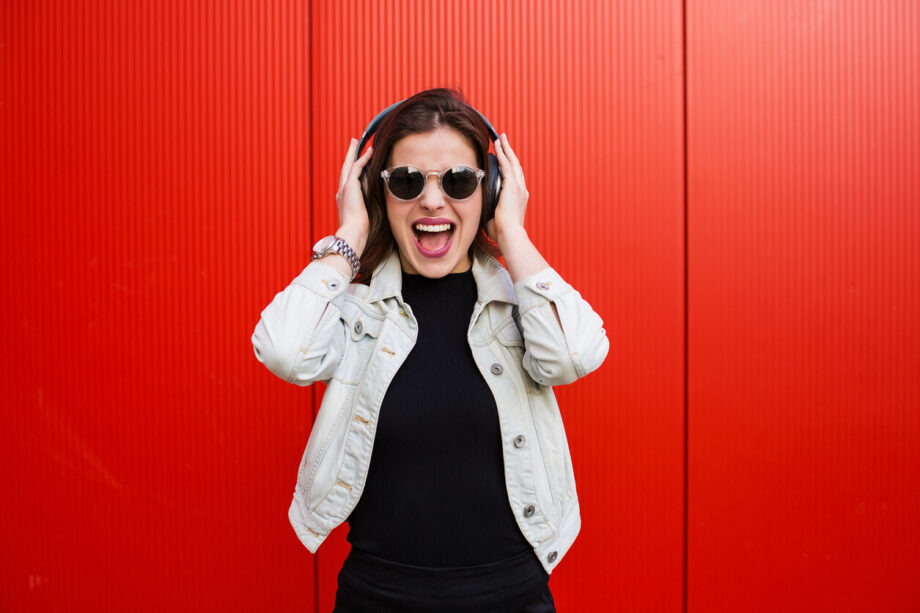We’ve all been there. You’re getting hot and heavy, about to round third base. There’s panting, sweating and moaning. Everything seems perfect, but something’s missing. Ah, that’s right. Music. You want to set the mood, so you grab your iPod and cue up your favorite Marvin Gaye album. Or Beethoven, or Lady Gaga, or Metallica. The point is, once those tunes start flowing from your speakers, everything is as it should be.
Music Magic
Music is a lot like sex. Irresistible, ineffable, euphoric. Listening to it boosts creativity, relieves stress, promotes cooperation, helps you sleep, and offers a host of other benefits. New research from the University of Vienna shows it also influences women’s attraction to men.
This shouldn't come as a surprise. After all, music has accompanied sex and intimacy for a long time. They just ... go together. Musicians rarely complete their career without creating at least one love song. And most of them do it with the full knowledge and intention that you'll play their song while in the throes of intimacy.
Cultures all over the world use instruments or music to attract mates. Musicians are notorious for getting dates, just for being musicians.
Well, you get the idea.
But, as it turns out, those songs are even more important to your intimate lives than we even realized. Previous studies showed that people will “misattribute” physical excitement as sexual arousal. But more recent research shows something more: that music can also cause arousal that you could “misattribute” as sexual.
What Does the Science Say?
The 2017 study looked at both men and women without any musical expertise and asked them to rate the attractiveness and dating desirability of a set of 40 faces.The faces were opposite-gender, set in a neutral expression. Study participants indicated how attracted they were to the face, and how likely they would be to date the person.
The group then listened to four different clips of unfamiliar classical music. One was simple and unpleasant, one was simple and pleasant, one was complex and unpleasant, and one was complex and pleasant. Following each musical clip, they rated the attractiveness and dating desirability of the faces again. They did this a total of five times. It’s like speed dating without the awkwardness, but you get paid at the end!
Interestingly, men didn’t show any reactions to the musical cues. Their ratings of attractiveness and dating desirability were the same, regardless of the music played. Women, however, had a stronger reaction. Listening to music affected their ratings of both attractiveness and dating desirability. “High-arousing” music led to higher attractiveness and desirability ratings than “low arousing” music. It didn’t matter whether the music was pleasant or unpleasant.
Let me repeat that. The women were attracted to men after listening to high-arousing music (music they liked). Low-arousing music (music they didn't like) made them sort of attracted to the men. Silence had no effect on them. In other words, they were misattributing the arousal they felt from the music as sexual arousal.
What Does This Mean?
One theory is that music evolved with humans because of its role in our mating practices. Even Darwin recognized the significance of music’s role in mate selection. He thought we invented music as a tool to secure mates. Music is a coveted skill; not everyone can play Brahm’s Requiem. So, those who can have a rare ability they can leverage to woo potential partners. "Come, join me in the parlor for a sonata, followed by a special treat." It must have worked - people are still doing it today. Groupies, anyone?
Music Goggles
You’ve probably heard of “beer goggles.” These results show that if you’re a woman, you might be susceptible to “music goggles.” Many preferred dating scenes (bars, restaurants, coffee shops, clubs, and festivals) that play music in the background. You might not be aware of it, but that music could be affecting how attracted you are to your date. Homeboy seemed OK at first, but as soon as they started playing Daft Punk, he went from a 6 to an 8.
Misattribution of arousal is the key. Your brain says, “I sense arousal. How do I interpret this?" Then it sees the guy next to you, making bedroom eyes. Boom, you’re in sexual arousal mode. Does that mean you should listen to some hot tunes to get in the mood? Or just be aware that the prince you picked up at the bar might just be a frog by morning? How you decide to use this newfound knowledge is totally up to you.





